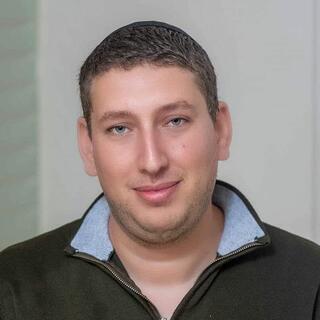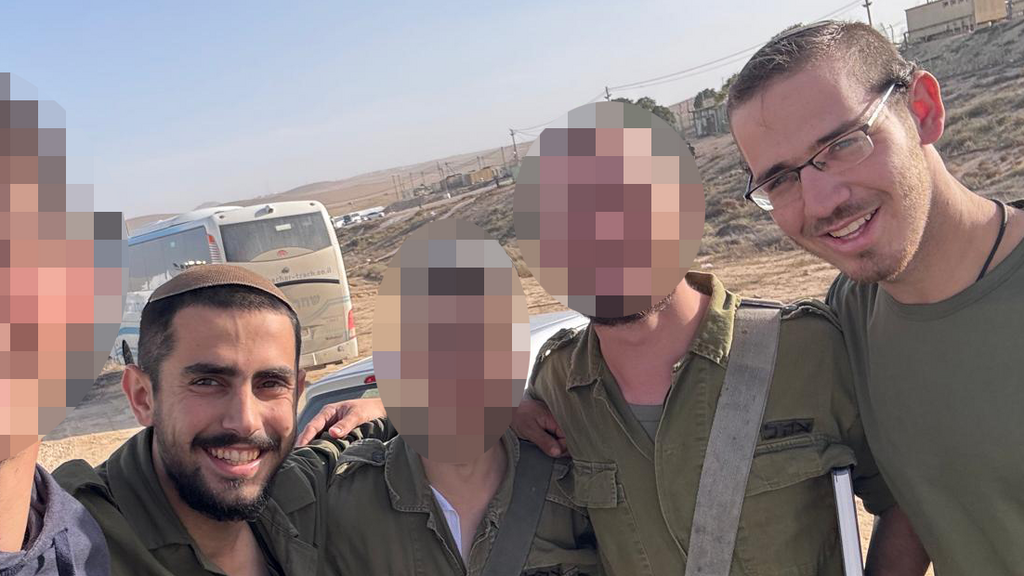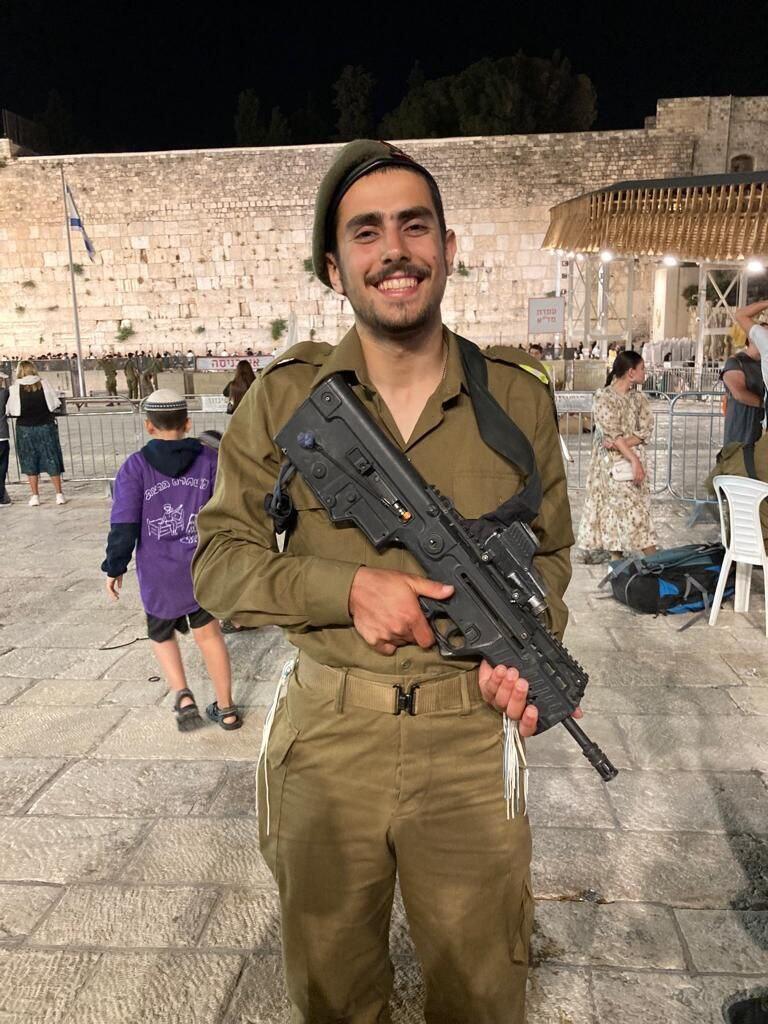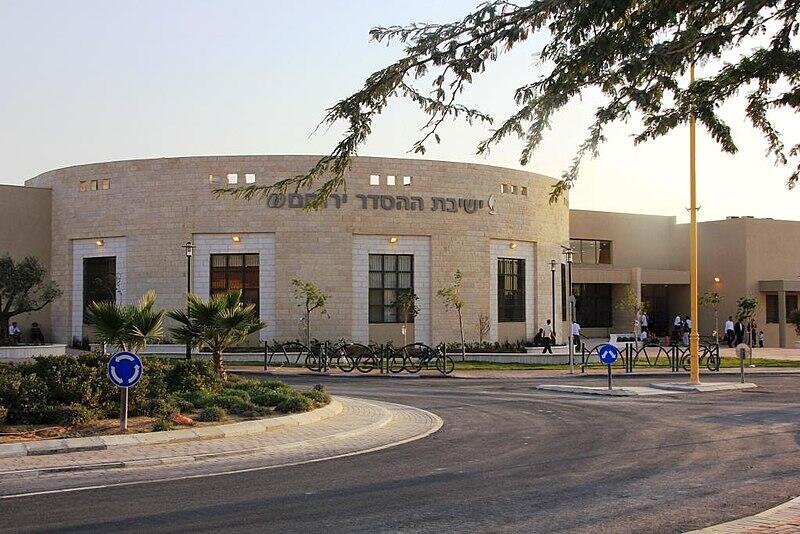Getting your Trinity Audio player ready...
Efraim Yachman was supposed to celebrate his 23rd birthday on Thursday. Instead of a joyous occasion, the day became one of remembrance and longing for the Givati Brigade soldier who was killed in the early days of the war during a clash in Gaza. His family and friends chose to honor his life, legacy and unique musical talent by releasing a song he composed during the fighting.
Yachman was a student at the Hesder Yeshiva in Yeruham, which lost ten of its students and alumni in the Iron Swords War. Described by family and friends as a role model and exemplary figure, Efraim was known for his deep connection to Torah and his passion for music.
“He was a very serious person, loved Torah and was deeply devoted to it,” said his brother Yosef Meir Yachman, one of six siblings. Efraim was a gifted musician who began playing piano in first grade and later took up guitar and drums in middle school.
At the start of the war, Efraim entered Gaza alongside his yeshiva and military comrade, Matanel Lisner, serving in a separate team from their yeshiva unit. Lisner recalled the moment the reality of war truly struck them: “When the mortar exploded near us, we understood the real dangers of combat. We decided together to compose a quiet melody to the verse ‘I called upon Hashem in distress,’ which we felt was so desperately missing amid what we were going through.”
After two of their classmates from Yeshiva cohort 28 — Eitan Rosenzweig and Yakir Yedidya Schenkolewski — were killed, Matanel and Efraim resolved to complete the song in their memory. The melody became a tribute of remembrance and strength for their unit, which fought in Gaza. Ultimately, the fallen friends were laid to rest side by side in the military cemetery.
One month later, Efraim fell in a clash with terrorists in the Daraj Tuffah neighborhood of Gaza City. Lisner, who survived the firefight with minor injuries, recounted the harrowing encounter.
“We were defending from inside a building when three terrorists jumped in and opened fire. Efraim and the company commander went up the stairs to engage, so we could evacuate the wounded. I was helping a wounded soldier down the stairs when I spotted a grenade land near me. I felt the blast, but I kept moving him. Only later, after I was evacuated, did I learn I’d been hit,” he said.
“When I returned home from Barzilai Hospital, my parents told me Efraim had fallen. It was incredibly hard to hear. In the war, I was one of the few who spent nearly every moment with Efraim. That bond gave me a deep sense of duty to honor him through the song we wrote together.”
Lisner’s commitment didn’t end there. Just six weeks after his injury, he returned to the battlefield in Gaza City’s Zeitoun neighborhood. There, his unit was ordered to demolish a building and burn its third floor. “After setting fire to the room I was in, I realized I had no exit—the whole floor was engulfed in flames,” he said. “I fired into the air, groping through the thick smoke, unable to see anything. In that moment, I thought about everything—about the end.”
In the chaos, Lisner whispered a prayer. “Suddenly, God lit up my eyes, and I saw light coming through a window,” he recalled. “I ran to it, stepped outside, took a deep breath and realized the only way out was to jump.” He leaped three stories onto the roof of a nearby warehouse. “I survived by a miracle—and with me, the song in Efraim’s memory.”
Yachman wasn’t the only musically gifted member of the yeshiva to fall in battle. Their friend, Yair Hananya, also a talented musician, had helped Lisner record the song’s first demo. Just weeks after their initial arrangement, Yair too was killed. His voice and memory now live on in the song and music video, forever intertwined with the legacy of the yeshiva’s fallen.
According to Rabbi Chaim Wolfson, head of the Hesder Yeshiva in Yeruham, the song and video honoring Yachman serve not only as a personal tribute but as a reflection of the broader national experience.
“The song tells the story of the entire people of Israel, moving from narrowness to expansiveness,” Rabbi Wolfson said. “We’re in a national crisis that began on Simchat Torah, and we’re working to emerge from it and defeat our enemies. Even in that narrow space, we discovered moments of expansiveness—within the grief, we found sources of strength.”
Get the Ynetnews app on your smartphone: Google Play: https://bit.ly/4eJ37pE | Apple App Store: https://bit.ly/3ZL7iNv
Rabbi Wolfson continued, “This is a story of the hardships of fighting in Gaza and the joy of brotherhood among comrades. It’s also about the bereaved families who face their loss with remarkable dignity and inspire us all. It’s a song about our kidnapped brothers who are still suffering in captivity—we cry out for their swift return to freedom. These days, as we approach Passover, are a time of renewal and liberation. The Jewish people long to be freed from all forms of oppression and to find the Lord even in the darkest places.”
Now that the video has been released, Yosef Meir Yachman, shared his emotional reaction: “The video was an incredibly meaningful moment for me. After an entire year, everything culminated in that one powerful experience. The melody has become part of my prayer—it’s no longer just a song, it’s part of my life.”
He recalled one moment in particular from the filming—the gathering of the entire yeshiva and bereaved families in the courtyard, all singing the melody together, with tears and uplifted spirits. “It didn’t feel staged—it was a deeply authentic moment.”
Matanel Lisner described the video’s release as filled with “mixed emotions.” “On one hand, there’s pain and chills—it all comes together in a painful point,” he said. “But on the other hand, I’m glad we were able to bring it to light after all we’ve been through.”
He emphasized that “the message of the video is the ideal synthesis of different parts of our lives—family, army and yeshiva—each one valuable and meaningful on its own. From this integration emerges the ideal image of the yeshiva student: someone who shares responsibility, who bears the burden for the people of Israel and its Torah. Beyond the memory and grief in the video, it offers a call to rise from crisis—a vision of growth and continuity, shaped by all we’ve endured.”






